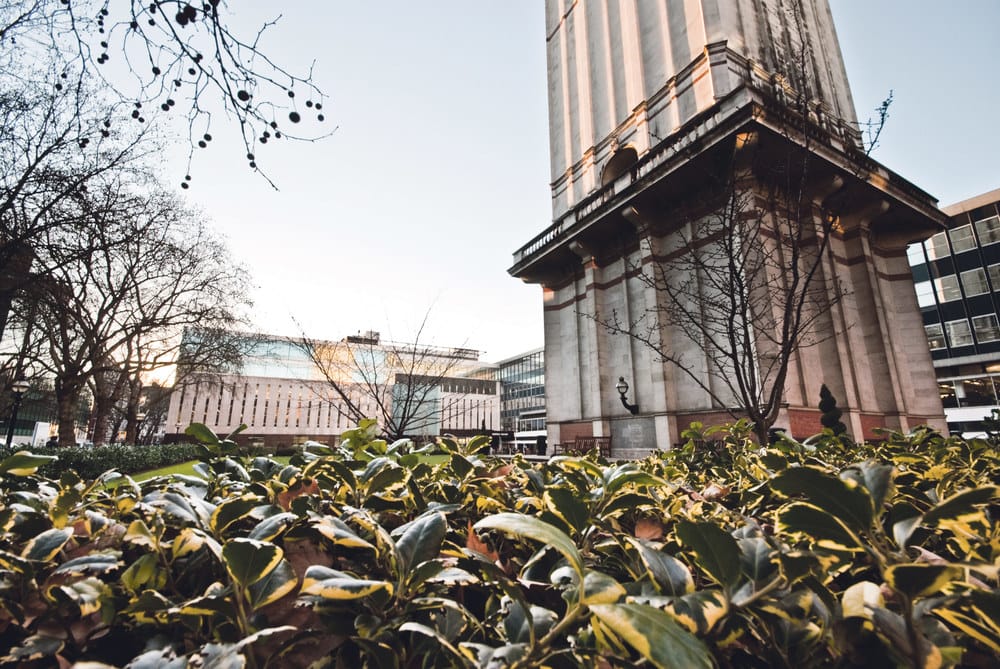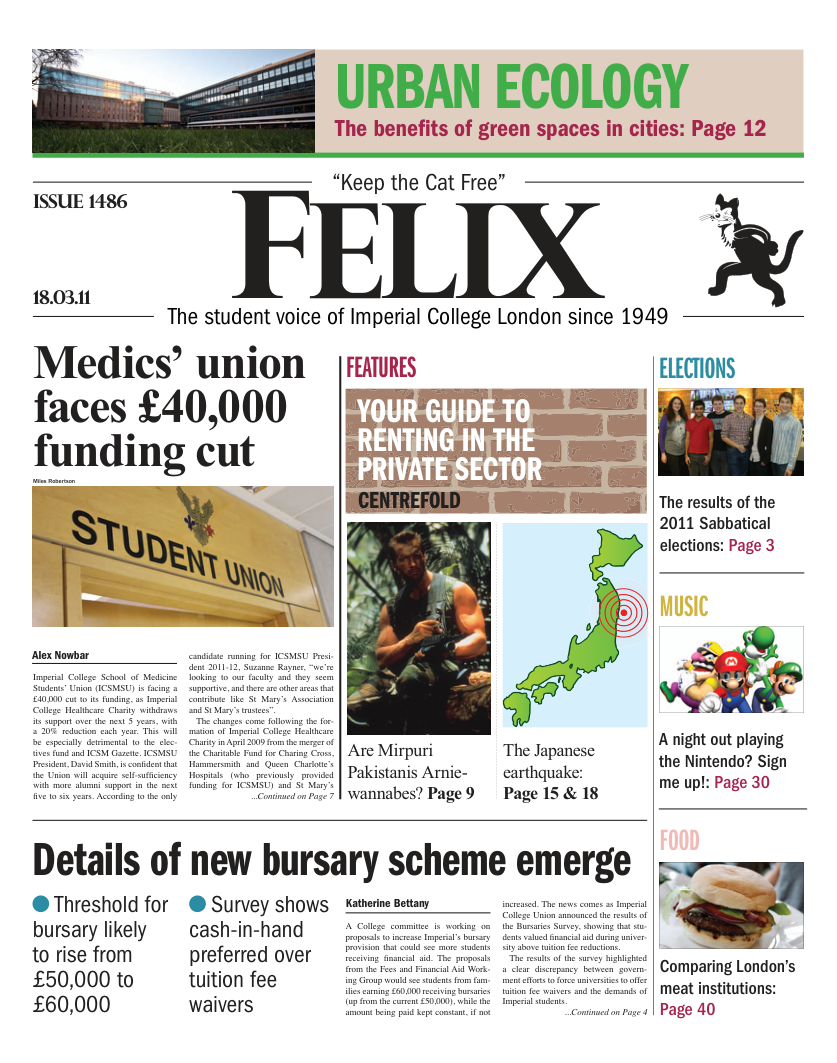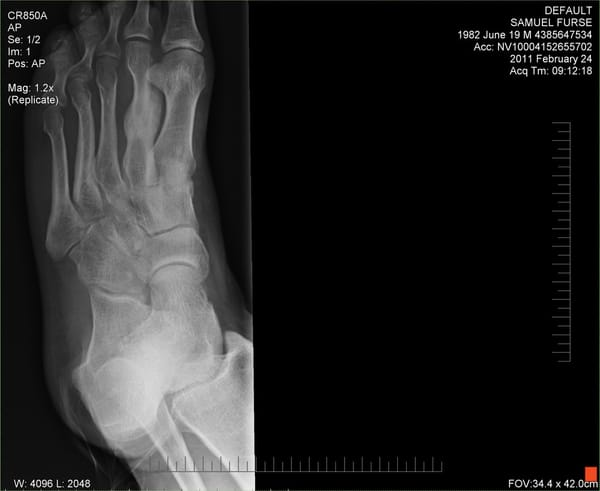Urban Ecology
Machete in hand, Andrew Purcell sets off to explore our urban jungle...

Over half of the world’s 6.9 billion people now live in urban areas. So, perhaps it’s time for us to embrace the ecology of our urban areas, look at the species that thrive in these environments and take steps to protect them. At the same time, we must ensure that our urban environments do not unnecessarily encroach upon remaining green spaces and our cities do not grow in an unsustainable manner.
Here at Imperial College, we are right in the centre of one of the world’s great cities, capital of one of the world’s most industrialised nations. So, how much do we know about our urban environment? And, what kinds of efforts are being made to improve the ecology of our campus?
Of course, London is famous for its great parks and Hyde Park is just a couple of minutes walk away from campus. However, whilst London’s parks are undoubtedly great places to spend a sunny Sunday afternoon, they aren’t always necessarily home to the most diverse range of plant and animal life. This is where TrUE comes in. TrUE stands for the Trust for Urban Ecology, which was set up by environmentalist Max Nicholson in 1976. TrUE now runs four sites here in London: Greenwich Peninsula Ecology Park, Lavender Pond Nature Park, Dulwich Upper Wood and Stave Hill Ecological Park. These sites provide important habitats for many species, but they’re also about education, with lots of school activity programmes and opportunities for local people, like us, to get involved. Mick Wheeley, site administrator at Greenwich Peninsula, said: “Some of the kids who come down here really have no idea about British wildlife – they come down here expecting to see crocodiles! But they learn lots at our site and they’re still excited by looking at the newts, frogs and birds we do have here”.
Even closer to home, here at Imperial College, there’s also a community of volunteers keen on protecting our natural environment. Environment Soc is led by Reuben Gibbon, a medical student with a passion for all things green. Reuben and his band of just 16 urban ecowarriors work on a small garden plot, hidden away behind Ethos. The garden is officially called ‘Prince’s Gate Garden’, but it’s affectionately known as ‘the secret garden’ amongst society members. The garden has a pond with a thriving frog population and there are a number of small allotments where a range of fruit and vegetables are grown – they even have a banana plant. However, Reuben is keen to stress that the society isn’t just about gardening: “We also get involved in lots of environmental campaigning. Last year, we were particularly involved in the 10:10 campaign to tackle climate change”.
Along with Stef Piatek, Reuben is also Environment Officer for Imperial College Union. The pair recently pressed the Union to remove Blue Shark from the menu of FiveSixEight. Stef argued that, “selling shark meat just doesn’t make sense, blue fin sharks aren’t quite... [an] endangered species yet, but they’re pretty close, so I don’t really think they ought to be selling this sort of meat”.
Of course, it’s not just students who are looking after Imperial’s green spaces and making sure we reduce our negative environmental impacts. Last month saw the first batch of compost from Imperial’s new ComPod programme used by gardeners on the South Kensington Campus. ComPod is a food composting plant, designed using technology developed here at Imperial, which composts the 1.1 tonnes of food waste produced at the College each week. Imperial College has been given two Rushlight awards for this programme. Whilst this is certainly good news, Imperial College’s main contribution to the world of sustainable urban ecology is undoubtedly through its leading academic research.
Dr Simon Leather is a reader in applied ecology at Imperial’s Silwood Campus. For over twelve years now, he has been studying roundabouts in Bracknell, treating the roundabouts like small islands of green in a sea of tarmac and concrete. Dr Leather had this to say on the subject: “At the beginning, I started looking at roundabouts as purely an academic exercise, but I soon realised that it was a great way of getting people interested in Urban Ecology. There is a huge abundance of wildlife which thrives on roundabouts; I like to think of them as urban nature reserves”.
Dr Leather is somewhat sceptical about the extent to which green spaces in cities and ideas such as vertical gardens and skyscraper farms can help reduce atmospheric carbon dioxide levels. He argues that, although most of the world’s population now lives in urban areas, the actual area our towns and cities take up on the globe is still relatively small. As such, Dr Leather believes that green areas in cities are unlikely to ever make a significant impact in reducing atmospheric carbon dioxide levels. Instead, he argues: “Green spaces in urban areas are much more about mitigating the effects of climate change, rather than tackling its causes. Large green spaces in cities can actually help reduce the temperature a small amount.” According to Dr Leather, the two main benefits of green spaces in urban areas are undoubtedly preserving biodiversity and reducing flood risk: “People are constantly tarmacking over their gardens so they have a place to park their cars and this leads to significantly reduced run-off times when it rains. Maintaining green spaces can help us avoid this problem”.
However, the benefits of urban ecology don’t end here. Dr Leather argues that green spaces can also have a massive affect on human psychology: “Trees can make you feel calm and peaceful; research has shown that people who drive to work along streets lined with trees tend to arrive at work in a happier frame of mind than those who drive to work along streets without any greenery”. In addition, the ability of trees to improve our mood manifests itself in economic terms: “If you have two similar streets, one with trees on it and one without, the houses on the streets with trees are likely to be worth significantly more”.
The effects of urban ecology on our human psychology is a subject which Professor Nigel Bell of the Imperial College Centre for Environmental Policy has also looked into closely. He says: “green spaces are certainly good for people’s mental well-being; it has been shown that giving hospital patients a view of green space from their window can actually improve their chances of recovery”.
However, Professor Bell’s main area of interest is air pollution. Air pollution causes around 4,500 premature deaths in London each year. Professor Bell has published a number of papers on how air pollutants, produced by cars and industry affect our urban ecology. He believes: “London probably has more green space than any other city in Europe; it’s really important that we have this vegetation to help filter out these air pollutants”.
In 1993, Professor Bell chaired a review group on urban environmental science. In a report which Professor Bell himself describes as “pretty damming”, he argues: “Over 90% of British people live in towns and cities, yet the government has no department directly responsible for urban areas – this seems ludicrous to me”.
Yet, Professor Bell isn’t just concerned with urban ecology in London, or even just in the UK. He has also looked at the effects of air pollution in cities in India, including Delhi and Varanasi. He argues that this is a huge problem which needs to be tackled: “Air pollution has a major effect on urban agriculture, it dramatically reduces yields. But this problem is not even recognised by the Indian government”. According to Professor Bell, it is mainly people who have small subsistence farms in these urban areas who suffer as a result. As with many of the issues surrounding urban pollution, he argues: “it is once again the poorest of the poor who end up suffering most”.
Thus, our ability to protect urban ecology is not only of paramount importance for protecting plant and animal biodiversity, it also plays a vital role in improving the quality of our lives too.









